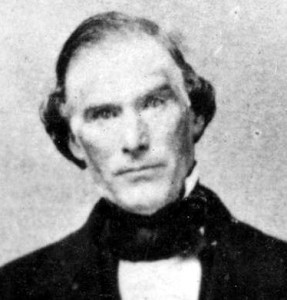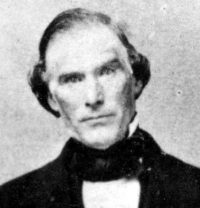
Let us prepare ourselves for the coming of Enoch’s Zion, that we may have the same order of things among us that they had in the beginning. Then, again, it will be a glorious thing in many other respects.
Pratt is inviting the Saints to prepare for the coming of Enoch’s Zion by establishing “the same order of things” here. In other words, “Let’s build Zion here so when Enoch’s city returns, we will be living on the same level as they are now.”
What is it that creates this great inequality that we naturally see in the world, in regard to the high and low [classes]? It is the difference of parentage in many respects. One man is so situated he can train up his children in all the learning of the day; he can take them into his carriage, and they can ride at their ease, and in their grandeur, while the poor and needy and destitute bow before them, or are trampled under their feet. There is no such thing as union there, because they were unequal to begin with.
We see from this quote that Pratt believes economic unity is the absence of classes.
When the Saints have this [union] established in their midst, you will see them all alike, where none can say that “such a person is richer than I am, and I have no right to associate with him.” Neither can the rich look upon those that are poor, and say, “My children shall not marry with the poor, and unite with them in their festivities, &c., because I have more property than they.” All these things will be done away, and the principle of equality will be established, and all will be stewards of the Lord’s property. That is what I wish to see—that when one family of children have the privilege of being educated, the rest should enjoy it; when one family are in possession of the good things of the earth, the rest should enjoy the same privileges also.
Do you see the pride inherent in economic inequality? The poor believe they are not good enough to associate with the rich. And where did they get such a notion? From the rich refusing to associate with the poor, assuming themselves “better than” those who are less gifted in commerce.
By no means am I suggesting that we adopt Socialism to reach Orson Pratt’s ideal mentioned here. Forced equality is an oxymoron – if someone is strong enough to force others to be equal, that someone is obviously on a higher level, in a position to exert unresistable force. Enforced equality will always result (as the former Soviet Union illustrated) in a two-tiered, unequal society – the enforcers, and the enforced.
No, I’m suggesting that the economic equality valued by Orson Pratt is only attainable through voluntary equality. My guess is that voluntary equality does not mean we all get together and divide up all the stuff we’ve collected on our own. I have recently come to understand that it means we all work for the good of all, not for ourselves or just our own families, but for everyone in our community. We all work together for our mutual benefit. This idea is encapsulated in Pratt’s last phrase, “when one family are in possession of the good things of the earth, the rest should enjoy the same privileges also.” Zion is not earning our toys on our own and then dividing them up — It’s the group deciding what toys we want next, and then producing enough for everyone to enjoy them.
If there was sharing of all goods produced with one’s community, then all would enjoy the same goods. No one would have more or better stuff. In such a community, there would be no need for a marketplace, no need for money, no need for police to stop the Have-nots from stealing from the Haves. No crime, no poverty, no prostitution, no political parties, no lawyers. We would have “all things in common”. Zion.
When Enoch’s city returns, are we going to be practicing this kind of social and economic equality? Are you ready?
